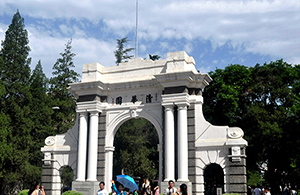Abnormal deaths of officials should be checked for cause
(China Daily) Updated: 2015-11-25 08:21
 |
|
Clouds cover the Lijiang River in Guilin city, South China's Guangxi Zhuang autonomous region, May 19. |
A township-level chief in Guilin, Southwest China's Guangxi Zhuang autonomous region, is reported to have died from a fall in his house on Sunday; Zhao Mansheng is the ninth official to have died unexpectedly in the past 30 days. Their untimely deaths should be investigated to see whether any corruption or other wrongdoing was involved, says Beijing News:
The unexpected death of anyone should be looked at and its cause made clear. That is especially true when the person that dies is an official. The authorities have a duty to investigate and determine the cause of death because the deceased has power in his or her hands and that might have been the fundamental cause of death.
With the ongoing anti-graft campaign showing no signs of easing, the "abnormal" deaths of officials arouse people's suspicions. Were they involved in corruption? Did they commit suicide? Is there any corruption clue in their hands? Did some higher official have them murdered?
Such questions need answering by the local governments in which the deceased officials served. However, the reality is local governments seldom disclose details about the deaths of serving officials. When they have, the information provided by local governments is often misleading and illogical.
For example, Hao Zhuang, the police chief of Jiaohe, northeastern Jilin province, died on Nov 9 and the local government said he died while cleaning the window of his office. Actually, that's not his job, and people in Northeast China generally do not clean their windows in winter because of the cold. Inmost cases, local governments simply mention no details about the deaths in their announcements.
Such actions by local governments are rather silly because they only hurt their credibility. No one believes their lies or the weak explanations that follow. On the contrary, the officials' deaths become scandals, and gossip about them spreads from one person to another.
And by trying to conceal information about officials' abnormal deaths, the local governments are also unfair to these dead officials, because some of them might be innocent but the concealing of information arouses public doubts about their honesty.
It is necessary for the disciplinary staff to intervene so that every untimely death of an official is investigated.











